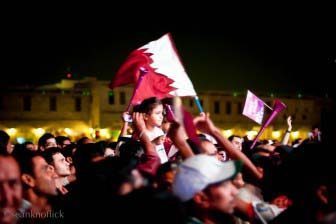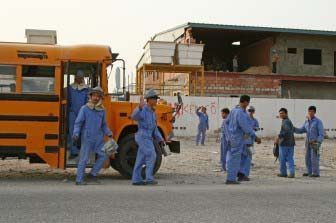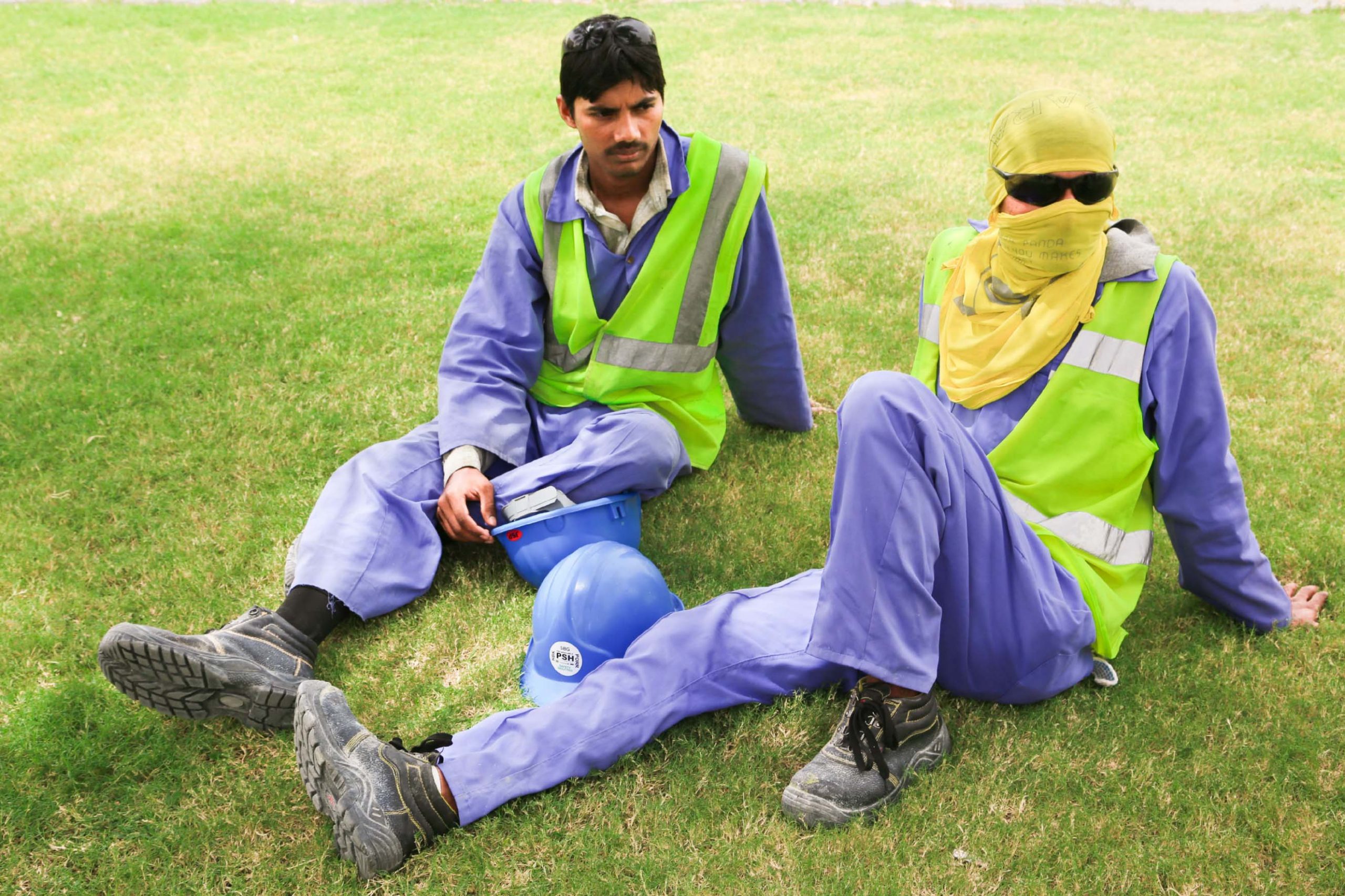
Despite repeated pledges, authorities in Qatar “have done almost nothing effective to end chronic labor exploitation” in the country, Amnesty International has said in a new report.
The group added that FIFA is partly to blame by facilitating the “rampant” abuse of low-income workers here instead of pressuring Qatar to improve its human rights record.
“FIFA has played its part in this sorry performance. It knew there were labor rights issues in Qatar,” Amnesty researcher Mustafa Qadri said in a statement.

The criticism was made in an annual scorecard on labor rights in the Gulf country, released on the eve of the five-year anniversary of Qatar being named the host of the 2022 World Cup.
Since that time, the country has hired hundreds of thousands of people to work on construction of hotels, stadiums, shopping centers and transportation infrastructure in preparation for the tournament.
“(FIFA) knew there were labor rights issues in Qatar,” Qadri said, continuing:
“FIFA has bent over backwards to make a Qatar World Cup work, even taking the unprecedented step of moving the tournament from summer to winter. But apart from occasional public statements the organization has not set any clear, concrete agenda for how it will push Qatar to ensure migrant workers’ rights are respected.”
Under Qatar’s restrictive sponsorship laws, expats need their sponsor’s permission to leave the country or, in many cases, change jobs. Many low-income workers say their employers confiscate their passports, are late in paying wages and force them to live in overcrowded and unsanitary labor camps.

The report was released a week before FIFA officials return to Doha to meet local World Cup organizers for their second board meeting. It also comes less than three months before football’s governing body elects a new president.
So far, at least one presidential hopeful has said he would work to ensure improved conditions in Qatar.
Speaking in India this week, Prince Ali bin Al Hussein of Jordan was quoted as saying FIFA needs to seek guarantees from Qatar when it comes to ensuring proper living and working conditions for its blue-collar workforce.
Ongoing pressure
Calls for FIFA to pressure Qatar into improving its human rights record began almost immediately after it announced the Gulf country would host the World Cup. However, FIFA officials have delivered mixed messages about the organization’s role in promoting human rights.

In November 2013, FIFA President Sepp Blatter said the football organization was “starting to react” to the “problems” but also appeared to distance himself from the issue, saying the companies who hire workers – and not the world’s football governing body – are responsible for ensuring employee rights.
Locally, all companies working on World Cup stadiums and training facilities are required to abide by a workers’ charter that prescribe minimum standards for recruiting, compensating and housing employees.
Earlier this year in Doha, FIFA secretary general Jérôme Valcke – who has since been suspended amid allegations he sold World Cup tickets for more than face value – said he “expected” those standards to be applying at construction sites across Qatar, including those not directly related to the World Cup.
That hasn’t happened, and Amnesty says Qatar’s “tinkering” of its laws have changed little for the country’s expats.
Delays
The human rights organization is critical of Qatar delaying plans to hire more labor inspectors and for taking more than a year to introduce minor reforms to its controversial kafala sponsorship system that aren’t expected to take effect until next year.

“The reforms proposed by the government fail to tackle the central issues that leave so many workers at the mercy of employers, yet even these changes have been delayed,” Qadri stated.
Amnesty did note that progress had been made in ensuring companies pay their employees by introducing a wage protection system requiring salaries to be deposited directly into workers’ bank accounts.
This is meant to create a digital record of payments so authorities can track late or non-payment of wages.
In addition to calling on FIFA to put more pressure on Qatar to protect its blue-collar expat population, Amnesty said football fans should consider the ethical implications of traveling to the Gulf state for the tournament:
“Unless action is taken – and soon – then every football fan who visits Qatar in 2022 should ask themselves how they can be sure they are not benefiting from the blood, sweat and tears of migrant workers,” Qadri said.
However, an academic study concluded that dedicated football fans don’t share the “moral panic” of the media and human rights organizations over Qatar hosting the World Cup and still plan to attend.
Amnesty said it plans to release “a major report” on migrant labour abuse involving businesses working on World Cup 2022 sites early in the new year.
Thoughts?







